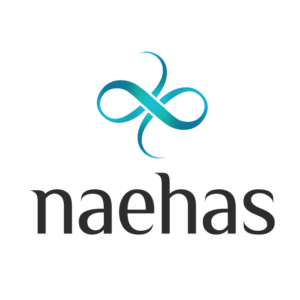For fintech companies, especially those seeking to partner with banks in the fast-developing Banking as a Service (BaaS) niche, understanding compliance and readying for regulations is a critical function. It’s also a tall order. Supporting teams who are coordinating disclosures, compliance and approvals is how we at Naehas partner with fintech firms and finserv institutions. We help optimize processes, improve compliance, enhance customer experiences, and drive growth.
Knowledge is power. So, this article endeavors to outline best practices, identify existing/impending laws, and uncover compliance solutions.
Just what is Banking as a Service (BaaS)?
A recent report by Cornerstone Advisors defined this growing trend of banking as a service this way:
“A strategy where a financial institution partners with a fintech or other non-financial institution brand to provide financial services to the partner’s customer base, leveraging the institution’s charter and capabilities like account management, compliance, fraud management, payment, and/or lending services.”
Notably, BaaS enables non-bank organizations to efficiently offer regulated, compliant and secure financial services. Banks of all sizes are increasingly sharing information with prospective and existing customers, on new products and services, with written and digital communication. Ensuring that content is compliant is key. Automating disclosures and reviewing marketing content is an important function.
How does it work?
BaaS’s partner with fintech companies to extend banking services to a unique financial service provided to consumers, typically through the use of APIs (application programming interfaces). Bank provides the banking services and/or compliance services required by a FDIC approved financial institution.
Why is it gaining momentum?
BaaS allows non-bank organizations to integrate all the financial components (including compliance and regulatory requirements) into its business processes. The benefit for the business is that it saves them time and money from building their own banking platform. The benefit to the consumer is a unique financial service, streamlined to offer a better and more complete user experience. Offering BaaS allows banks to offer their products at scale and to stay relevant in this technology-forward environment.
What Seems to be the Problem?
There are complications. There seems to be a supply and demand problem with BaaS. While more banks enter into this market, there exist large barriers to entry. Those include, but surely are not limited to building the API models, staffing, and scaling compliance at a much larger level.
At the same time, and on the reverse, retail and new fintech companies are racing to fill new niches in embedded finance. Banks are being selective, accordingly, as to which fintech companies they want to partner with. As such, the competition is getting hotter.
Fintechs which are able to show a prospective bank partner that they can (or have leveraged the resources to) manage regulatory compliance efficiently and effectively will find themselves better prepared, and a more attractive partner to established banks who want assurance their new partner understands the enormous demands of regulatory compliance.
Resources to Enhance the “Regulatory Resume”
This brings us back to partnerships. Teaming up with technology solution providers allows a fintech to build their “regulatory resume,” so to speak. Well-prepared fintechs are learning to leverage automation to tackle compliance challenges. Here are some of the benefits that tech platforms like Naehas have purposely-built for finserv through Disclosure Management and Intelligent Review tools:
- Automatically assesses and addresses disclosures for accuracy
- Enables consistency across entire enterprise
- Intelligently reviews disclosures
- Provides for omnichannel marketing, delivering all products to all channels
When and where can and should a fintech apply Disclosure Management automation? Two key areas: Marketing disclosures (offers, omnichannel outreach) and for all regulated content (customer communication, cardholder agreements, terms and conditions, changing rates, etc.) Why? Two key answers: To reduce risk. And to build a case for prospective Banking as a Service (BaaS) partners.
Another useful tool for fintechs is leveraging the Naehas Intelligent Reviews solution. This enables institutions to centrally manage all compliance evidence in a single, searchable file system, and to demonstrate compliance using the built-in compliance reporting functionality. It becomes a bulletproof audit history for regulators. Purposely-built for financial services, the innovative platform streamlines the review of personalized offers and content through automation. This breakthrough technology improves accuracy, increases productivity, and keeps marketing, legal and compliance teams aligned and on track, all while answering the ever-increasing demands of a growing sector facing increasing regulatory compliance rules.
What we know for sure
In the fintech landscape, speed-to-market is huge. The overlooked barrier to that is compliance. This much is clear: the fintech company which can show they can audit and report on compliance for their bank partners will get the priority to move forward.
 How to Stand Out?
How to Stand Out?
Fintech leaders surely all understand that the basics need to be in place. Three core essentials include:
- A solid Total Addressable Market (TAM)
- Unique technology
- Strong business plan
Another important, yet often as-yet unrecognized “should have” is critical in this competitive market. It appears that most fintech firms probably don’t yet know that they need to get a compliance program in order. Non-regulated should not be confused with ill-prepared. It’s common consensus that more rules and regs are ahead for fintech.
Regulations and Compliance Roadmap
Understanding existing laws is one important way for fintechs and banks alike – and those in marketing, legal/compliance, and risk management at those enterprises,
be prepare to address these important regulatory compliance laws and agencies:
- Know your Client/Customer (KYC) – A KYC check is the mandatory process of identifying and verifying the client’s identity when opening an account and periodically over time. In other words, banks must ensure that their clients are genuinely who they claim to be.
- Anti Money Laundering (AML) and Bank Secrecy Act (BSA) – also known as the Currency and Foreign Transactions Reporting Act; firms must comply with AML rules under FINRA Rule 3310, which sets forth minimum standards for a firm’s written compliance program.
- Office of Foreign Assets Control (OFAC) – publishes lists of individuals and companies owned or controlled by, or acting on behalf of, targeted countries.
- Unfair, deceptive, or abusive acts and practices (UDAAPs) – Under the Dodd-Frank Act it is unlawful for any provider of consumer financial products or services, or a service provider, to engage in UDAAPs
- Reg Z – Reg Z restricts how loan originators can be paid, and prohibits steering borrowers to loans that would result in more compensation to the lender.
- Financial Industry Regulatory Authority (FINRA) – an independent, non-governmental regulator for all securities firms (including but not limited to wealth management and investment firms) doing business in the United States. FINRA is authorized by Congress to protect America’s investors by making sure the securities industry operates fairly and honestly.
- Fraud – by definition, and vital to understand, is that fraud is the use of potentially illegal means to obtain money, assets, or other property owned or held by a financial institution, or to obtain money from depositors by fraudulently posing as a bank or other financial institution.
Where automated platform solutions can help fintechs most are with the terms and conditions for cardholder agreements, and intelligent reviews for automating marketing, specifically for UDAAP or Reg Z requirements.
So much of Fintech is about speed and adaptability. Those innovators who build upon AI platforms will be better positioned to scale and adjust to changing market conditions. Leveraging automation allows fintech firms to prepare for upcoming regulatory compliance, and maintain a competitive edge.
Naehas is a leading industry cloud for financial services companies to deliver exceptional CX that drives growth without operational and compliance risk. Naehas supports the work of companies like Chartwell by offering platform technology solutions to ensure compliance with regulatory standards. This provides confidence that all required disclosures and regulated content, such as customer communications, are coordinated in a way to reduce errors, improve time-to-market, and ensure compliance with all related laws.
 Marketing Compliance Reviews
Marketing Compliance Reviews
Compliance preparedness, regulatory readiness, now more than ever, is essential. Marketing compliance reviews and automating disclosures are a means to that end.
As more fintechs continue to compete for bank partners, those who can prove themselves to be regulatory ready will gain a valuable competitive edge.







